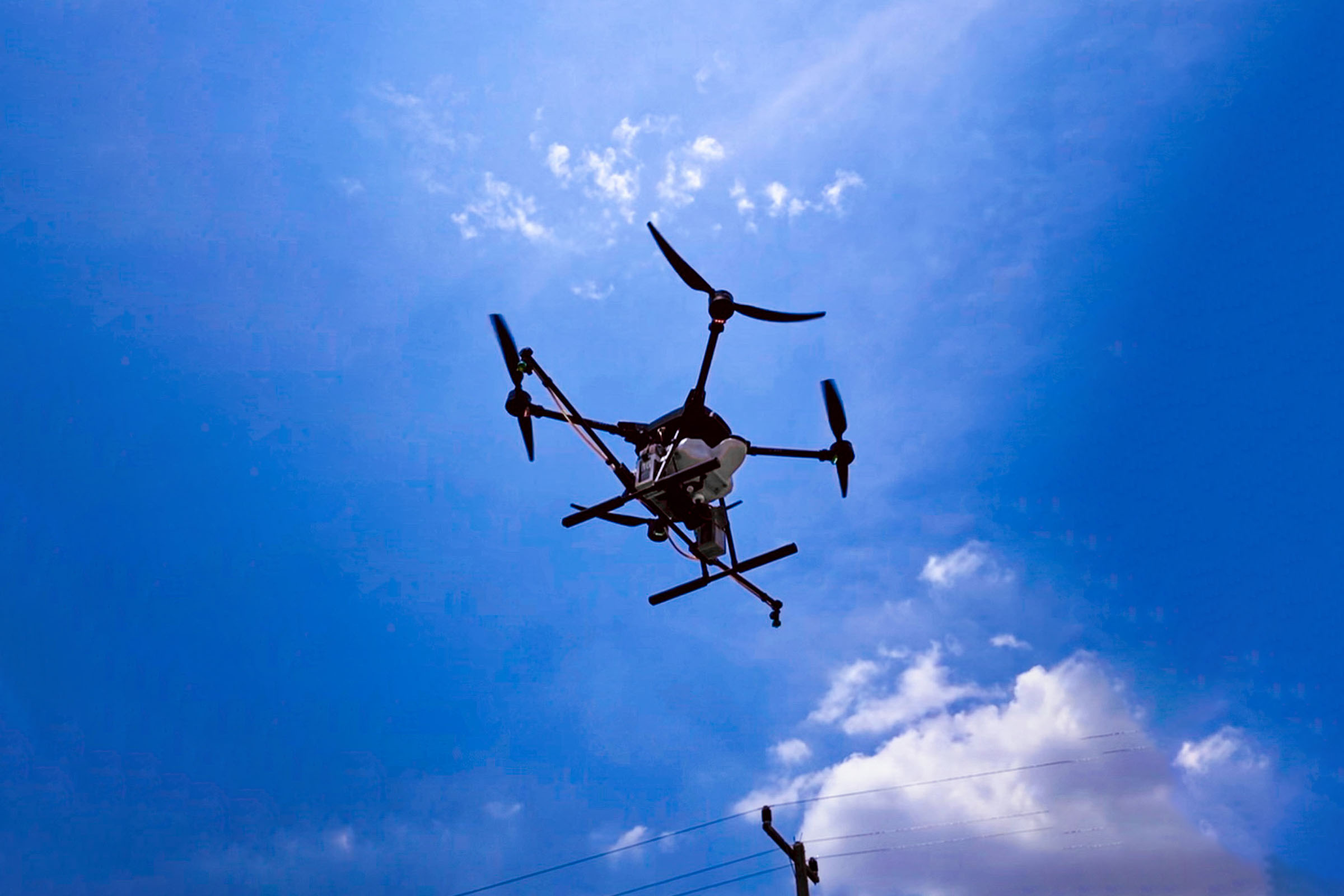
Resource
#thaiRAIN’s Innovation: Agriculture Drone
Challenge
Farmers need to adopt more efficient technologies to manage their production when faced with increased prevalence of crop pests and diseases. Manual chemical spraying, a traditional pest management method, is labor-intensive and often has inconsistent results. Direct exposure to chemicals also poses health risks to farmers. In addition, an aging farmer demographic in Thailand contributes to a labor shortage in rural areas, driving up the costs of manual spraying and crop management. Agricultural practices also face limitations in achieving uniformity and efficiency, which could only be best addressed by drone technology.
Solution
Drone technology offers farmers an efficient and safe alternative to traditional methods for applying pesticides, fertilizers, and other chemicals. Agricultural drones can significantly reduce the time and labor required for spraying crops. Equipped to carry chemical payloads, these drones can be programmed to follow precise flight paths, ensuring accurate application of chemicals to targeted areas. This level of precision reduces the reliance on manual labor, improves spraying efficiency, and ultimately lowers production costs for farmers. Another key advantage is improved safety for farmers and laborers. Manual application of chemicals poses serious health risks through direct exposure. Drones mitigate these risks by automating the spraying process, minimizing the need for human contact with hazardous substances. This is particularly valuable for Thai farmers facing labor shortages due to an aging workforce. By automating chemical applications, drones allow farmers to redirect their efforts toward other critical aspects of crop management.
Benefits
Spraying drones play a crucial role in helping farmers adapt to the impacts of climate change, including shifting temperature and precipitation patterns. By ensuring precise and timely application of chemicals and fertilizers, drones help optimize crop yields and minimize waste. For rising temperatures, drones can efficiently deliver heat-tolerant treatments, enabling crops to endure warmer conditions while maintaining productivity. Drones also address the fast evolving pest and disease dynamics. Their ability to deliver targeted treatments reduces the likelihood of pest and disease outbreaks, minimizing the need for broad-spectrum chemicals and reducing waste. Precision spraying with drones minimizes environmental impact by optimizing chemical use and reducing runoff into surrounding ecosystems. This promotes resource efficiency and supports sustainable farming practices, contributing to a more environmentally friendly approach to agriculture.
| Drone Spraying | Traditional Spraying | ROI Comparison | |
|---|---|---|---|
| Cost per Rai | 60 – 100 HB per rai | 150-0300 THB per rai (manual labor) | Drone usage can reduce costs by about 50% compared to manual spraying, primarily in larger fields due to labor savings and reduced chemical wastage. |
| Chemical Use Efficiency | 40% reduction in pesticide usage | Standard chemical consumption | Drone spraying leads to more uniform coverage, which reduces chemical costs and environmental impact while maintaining effectiveness. |
Business Model
Leasing and rental models have become practical solutions for farmers, allowing them to access drone technology without bearing the high upfront costs of purchasing individual drones directly from the manufacturers. To further facilitate this shift, #thaiRAIN is addressing the shortage of skilled drone operators by collaborating with Thailand’s Department of Agriculture and academic institutions to create and implement a certification program for drone operators.
Additionally, #thaiRAIN is improving farmers’ access to drone service providers by partnering with the Thai Agricultural Innovation Trade Association (TAITA) to develop a user-friendly digital marketplace platform, linking farmers with certified service providers. Further, #thaiRAIN is working with financial institutions and businesses to provide financial incentives that lower the cost barriers for smallholder farmers and encourage wider adoption of drone technology.
USDA Thailand Regional Agriculture Innovation Network (RAIN) project, funded by United States Department of Agriculture Food for Progress and implemented by Winrock International, strives to facilitate adoption of 30 agricultural innovations by 30,000 farmers.
